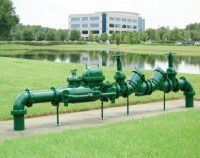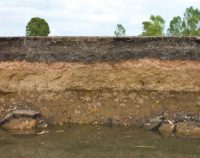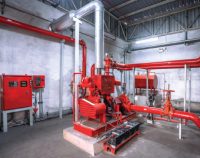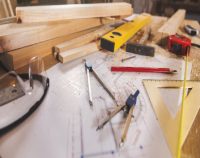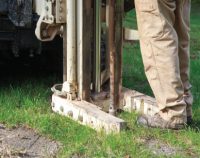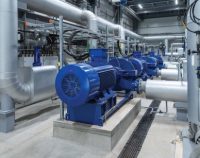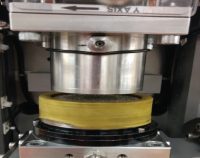Showing 41–60 of 76 results
Engineer’s Guide to Cross Connection Control: 4 PDH
$24.00 Add to cartIn this online course a student will understand cross connection risks, review real case studies of cross connection mishaps, and understand the various methods and procedures to mitigate cross connection hazards.Instructor: Seth Grablow, PESPECIFIC KNOWLEDGE OR SKILL OBTAINED
This course teaches the following specific knowledge and skills:
- Understand the health hazards of cross-connections
- Discuss various real-life mishaps
- Discuss cross-connections risk mitigation
- Explain programs for cross-connection control and backflow prevention
- Understand common cross-connection scenarios and methods to mitigate
CERTIFICATE OF COMPLETION
You will be able to immediately print a certificate of completion after passing a twenty (20) question multiple-choice quiz. The quiz can be retaken unlimited times until a passing grade of 70% or better is earned. This course satisfies four (4) continuing education hour (CEH)/professional development hour (PDH) of continuing education.
Preview CourseClick” Preview Course” to View Prior to PurchaseClick “Add to Cart” to Purchase and Access QuizEngineer’s Guide to Green Building-Part 2: 2 PDH (On-Demand Webinar)
$20.00 Add to cartIn this course the student will examine numerous materials and methods to incorporate into a commercial & residential build to make it a green build. This includes understanding of an in-depth examination of all green materials and methods for building green, and a comprehensive green building checklist to review before, during, and after any green build.Instructor: Raymond Bosek, PESPECIFIC KNOWLEDGE OR SKILL OBTAINED
This course teaches the following specific knowledge and skills:
- Learn what means to build “Green” and the many benefits it offers
- Understand a comprehensive list of design & building considerations to be examined during a build
- Discuss the numerous materials & processes which can be applied during a Green building project
- Review a comprehensive green building checklist to easily identify areas to apply Green Building principles
CERTIFICATE OF COMPLETION
You will be able to immediately print a certificate of completion after passing a five (5) question multiple-choice quiz. The quiz can be retaken unlimited times until a passing grade of 70% or better is earned. Records also are available anytime online by accessing your account on EZ-pdh.com. This course satisfies two (2) professional development hours (PDH) of continuing education.
Our On-demand Webinars are recorded from live webinars conducted utilizing GotoWebinar.com service (chosen for reliability, ease of use, no software required and ability to attend using your computer, tablet, or smart phone).Upon purchase your will have access to launch the On-demand Webinar.
The On-demand Webinar will play through similar to a live webinar, however you will have the ability to take anytime, pause/rewind and complete in more than one session.
Upon completion you will then answer a short five question quiz, which can be taken unlimited times until passing, immediately generating a certificate of completion.
You may print or save your certificate or access anytime within your account.Engineer’s Guide to Green Building: 1 PDH (On-Demand Webinar)
$10.00 Add to cartIn this course the student will examine numerous materials and methods to incorporate into a commercial & residential build to make it a green build. This includes understanding of the attributes of green building methods and products and the design and developing considerations for all building & home systems.Instructor: Raymond Bosek, PESPECIFIC KNOWLEDGE OR SKILL OBTAINED
This course teaches the following specific knowledge and skills:
- Learn what means to build “Green” and the many benefits it offers
- Explain the attributes of various materials and building products used for Green building
- Understand a comprehensive list of design & building considerations to be examined during a build
CERTIFICATE OF COMPLETION
You will be able to immediately print a certificate of completion after passing a five (5) question multiple-choice quiz. The quiz can be retaken unlimited times until a passing grade of 70% or better is earned. Records also are available anytime online by accessing your account on EZ-pdh.com. This course satisfies one (1) professional development hours (PDH) of continuing education.
Our On-demand Webinars are recorded from live webinars conducted utilizing GotoWebinar.com service (chosen for reliability, ease of use, no software required and ability to attend using your computer, tablet, or smart phone).Upon purchase your will have access to launch the On-demand Webinar.
The On-demand Webinar will play through similar to a live webinar, however you will have the ability to take anytime, pause/rewind and complete in more than one session.
Upon completion you will then answer a short five question quiz, which can be taken unlimited times until passing, immediately generating a certificate of completion.
You may print or save your certificate or access anytime within your account.Engineering Description of Soils and Rocks: 4 PDH
$24.00 Add to cartIn this course the student will understand the engineering characteristics of soils and rocks and to how to properly identify and classify to develop a subsurface profile for site evaluations.Instructor: Raymond Bosek, PESPECIFIC KNOWLEDGE OR SKILL OBTAINED
This course teaches the following specific knowledge and skills:
- Discuss soil descriptions and standards
- Explain soil classification and properties
- Discuss practical aspects of fine-grained and course-grained soils
- Explain rock descriptions and classifications (SPT)
- Understand subsurface profile development
CERTIFICATE OF COMPLETION
You will be able to immediately print a certificate of completion after passing a 20 question multiple-choice quiz. The quiz can be retaken unlimited times until a passing grade of 70% or better is earned. This course satisfies four (4) hours of professional development (PDH).
Preview CourseClick “Preview Course” to view prior to purchaseClick “Add to Cart” to purchaseEssentials of Heating and Cooling of Buildings: 7 PDH
$40.00 Add to cartIn this course the student will understand all elements effecting heating and cooling of structures and to properly calculate loads and loss for ideal thermal comfort.Instructor: Seth, Grablow PESPECIFIC KNOWLEDGE OR SKILL OBTAINED
This course teaches the following specific knowledge and skills:
- Discuss the human body, human heat transfer, and thermal comfort
- Understand design conditions for heating and cooling
- Understand heat gain, heat loss, and heat transfer of people and equipment
- Explain solar heat gain and transfer
- Discuss infiltration heat load and weatherizing
- Understand calculating heating and cooling requirements
- Understand annual energy consumption of a building
CERTIFICATE OF COMPLETION
You will be able to immediately print a certificate of completion after passing a 25 question multiple-choice quiz. The quiz can be retaken unlimited times until a passing grade of 70% or better is earned. This course satisfies seven professional development hours (PDH) of continuing education.
Preview CourseClick “Preview Course” to View Prior to PurchaseClick “Add to Cart” to Purchase and Access QuizFire Protection System Design: 3 PDH
$18.00 Add to cartThis three (3) hour course overviews standards to design and build an environment for building occupants that is reasonably safe from fire and products of combustion as well as how to provide a reasonable level of building usability and property protection from the effects of fire and products of combustion.Instructor: Seth Grablow, PEThis three (3) hour course overviews standards to design and build an environment for building occupants that is reasonably safe from fire and products of combustion as well as how to provide a reasonable level of building usability and property protection from the effects of fire and products of combustion.
SPECIFIC KNOWLEDGE OR SKILL OBTAINED
This course teaches the following specific knowledge and skills:
- Become familiar and identify fire protection engineering design criteria
- Discuss the various building fire protection devices and installation standards
- Examine adequacy for water supply and the various methods and standards to implement sprinkler systems
- Understand fire extinguishing systems – the how, what, and where to install
- Identify fire alarm system design guidlines and installation standards
CERTIFICATE OF COMPLETION
You will be able to immediately print a certificate of completion after passing a 15 question multiple-choice quiz. The quiz can be retaken unlimited times until a passing grade of 70% or better is earned. This course satisfies three (3) continuing education hour (CEH)/professional development hour (PDH) of continuing education.
Preview CourseClick” Preview Course” to View Prior to PurchaseClick “Add to Cart” to Purchase and Access QuizFire Protection Systems: 3 PDH
$18.00 Add to cartIn this course the student will understand fire protection systems and fire protection system operations and will be able to familiarize themselves with the various systems and components including operations and maintenance/ inspection procedures.Instructor: Seth Grablow, PESPECIFIC KNOWLEDGE OR SKILL OBTAINED
This course teaches the following specific knowledge and skills:
- Explain the various types of sprinkler systems
- Explain the various types of sprinklers
- Discuss the types of automatic sprinklers
- Discuss sprinkler system detection and indicating devices
- Describe sprinkler system inspection and testing procedures
- Explain types of gaseous extinguishing systems
- Discuss dry chemical extinguishing systems
- Explain the procedures associated with boiler water treatment and cleaning
- Describe the procedures for cleaning boiler firesides and watersides
- Describe the procedures associated with boiler maintenance
CERTIFICATE OF COMPLETION
You will be able to immediately print a certificate of completion after passing a 15-question multiple-choice quiz. The quiz can be retaken unlimited times until a passing grade of 70% or better is earned. This course satisfies three (3) hours of professional development (PDH).
Preview CourseClick “Preview Course” to view prior to purchaseClick “Add to Cart” to purchaseForecasting Solar Radiation and Photovoltaic Power: 5 PDH
$30.00 Add to cartSolar resource forecasting is critical for the operation and management of solar power plants and electric grids. In this course the student will understand the basic concepts and various methods of solar irradiance forecasting as well as forecasting the power production of Photovoltaic (PV) power plants.Instructor: Juan Pesante, PESPECIFIC KNOWLEDGE OR SKILL OBTAINED
This course teaches the following specific knowledge and skills:
- Explain empirical and physical solar forecasting methods
- Explain statistical and machine learning methods
- Discuss forecasting the production of a PV power plant
- Discuss statistical error measures
- Explain probabilistic solar forecasts
CERTIFICATE OF COMPLETION
You will be able to immediately print a certificate of completion after passing a 20 question multiple-choice quiz. The quiz can be retaken unlimited times until a passing grade of 70% or better is earned. This course satisfies five (5) hours of professional development (PDH).
Preview CourseClick “Preview Course” to view prior to purchaseClick “Add to Cart” to purchaseFundamentals of Biodiesel: 4 PDH
$24.00 Add to cartIn this online course a student will understand biodiesel and biodiesel blends and practical guidelines for using in place of standard diesel, this includes characteristics, storage and safety issues, and procedures for using in compression-ignition engines and boilers. Instructor: Seth Grablow, PESPECIFIC KNOWLEDGE OR SKILL OBTAINED
This course teaches the following specific knowledge and skills:
- Understand biodiesel and biodiesel blends
- Explain biodiesel benefits and attributes
- Discuss biodiesel blends and characteristics
- Explain safety, health, & environmental issues with biodiesel
- Understand storage and material compatibility
CERTIFICATE OF COMPLETION
You will be able to immediately print a certificate of completion after passing a twenty (20) question multiple-choice quiz. The quiz can be retaken unlimited times until a passing grade of 70% or better is earned. This course satisfies four (4) continuing education hours (CEH)/professional development hours (PDH) of continuing education.
Preview CourseClick” Preview Course” to View Prior to PurchaseClick “Add to Cart” to Purchase and Access QuizFundamentals of Wood Construction: 3 PDH
$18.00 Add to cartIn this course the student will understand the basics of wood in construction including common woodworking techniques for construction.This course is designed to bridge the gap in knowledge between engineers & building trade professionals.Instructor: Raymond Bosek, PESPECIFIC KNOWLEDGE OR SKILL OBTAINED
This course teaches the following specific knowledge and skills:
- Describe the types, sources, uses, and characteristics of the common woods used on various construction projects
- Explain the various methods and joints associated with woodworking
- Identify the different types of fastening devices
- Identify common trade terms
CERTIFICATE OF COMPLETION
You will be able to immediately print a certificate of completion after passing a 15 question multiple-choice quiz. The quiz can be retaken unlimited times until a passing grade of 70% or better is earned. This course satisfies 3 professional development hours (PDH) of continuing education.
Preview CourseClick “Preview Course” to View Prior to PurchaseClick “Add to Cart” to Purchase and Access QuizGeotechnical Subsurface Exploration for Roadways: 5 PDH
$30.00 Add to cartIn this course the student will understand the essentials of subsurface explorations for roadways with a comprehensive overview including site preparation, sampling methods, types of testing and methods, as well as standard guidelines and recommendations.Instructor: Raymond Bosek, PESPECIFIC KNOWLEDGE OR SKILL OBTAINED
This course teaches the following specific knowledge and skills:
- Discuss preparing for subsurface explorations
- Explain field reconnaissance and setting-up a exploration program
- Discuss sampling techniques and tools
- Explain various tests in addition to the standard penetration test (SPT)
- Understand guidelines for minimum exploration
CERTIFICATE OF COMPLETION
You will be able to immediately print a certificate of completion after passing a 20 question multiple-choice quiz. The quiz can be retaken unlimited times until a passing grade of 70% or better is earned. This course satisfies five (5) hours of professional development (PDH).
Preview CourseClick “Preview Course” to view prior to purchaseClick “Add to Cart” to purchaseHazardous Waste Identification: 2 PDH
$12.00 Add to cartThis course covers hazardous waste regulated by the EPA under the Resource Conservation and Recovery Act (RCRA), starting with determining whether what waste is considered a solid waste according to the RCRA regulations and moving on to determining if it fits one of the RCRA requirements for being a hazardous waste.Instructor: Raymond Bosek, PEThis course covers hazardous waste regulated by the EPA under the Resource Conservation and Recovery Act (RCRA), starting with determining whether what waste is considered a solid waste according to the RCRA regulations and moving on to determining if it fits one of the RCRA requirements for being a hazardous waste.
SPECIFIC KNOWLEDGE OR SKILL OBTAINED
This course teaches the following specific knowledge and skills:
- Fundamentals of the hazardous waste identification process
- Definition of hazardous waste & solid waste as used by RCRA
- How to identify listed hazardous wastes and their characteristics
- Interpretation of the mixture and 'derived-from' rules
- Interpretation of the contained-in policy
CERTIFICATE OF COMPLETION
You will be able to immediately print a certificate of completion after passing a 16 question multiple-choice quiz. The quiz can be retaken unlimited times until a passing grade of 70% or better is earned. This course satisfies 2 professional development hours (PDH) of continuing education.
Preview CourseClick “Preview Course” to View Prior to PurchaseClick “Add to Cart” to Purchase and Access QuizHurricane Mitigation: Summary Report On Building Performance: 3 PDH
$18.00 Add to cartAfter major hurricane disasters, the Federal Emergency Management Agency (FEMA) dispatches Building Performance Assessment Teams (BPATs) to evaluate the successes and failures of buildings to withstand the wind and flood forces of these storms. The teams document the results of their evaluations in building performance assessment reports. This 3-hour online course summarizes the BPAT reports for Hurricane Katerina.Instructor: Raymond Bosek, PEAfter major hurricane disasters, the Federal Emergency Management Agency (FEMA) dispatches Building Performance Assessment Teams (BPATs) to evaluate the successes and failures of buildings to withstand the wind and flood forces of these storms. The teams document the results of their evaluations in building performance assessment reports. This 3-hour online course summarizes the BPAT reports for Hurricane Katerina.
SPECIFIC KNOWLEDGE OR SKILL OBTAINED
This course teaches the following specific knowledge and skills:
- Describe the building and foundation types typically used in coastal areas
- Illustrate the ability of various building and foundation types to withstand coastal surge, riverine flood, and hurricane winds
- Explain design and construction practices that can reduce building damage in hurricanes
- Describe construction practices that can reduce building damage in hurricanes
CERTIFICATE OF COMPLETION
You will be able to immediately print a certificate of completion after passing a 15 question multiple-choice quiz. The quiz can be retaken unlimited times until a passing grade of 70% or better is earned. This course satisfies 3 professional development hours (PDH) of continuing education.
Preview CourseClick “Preview Course” to View Prior to PurchaseClick “Add to Cart” to Purchase and Access QuizImproving Energy Efficiency in Historic Buildings: 2 PDH
$12.00 Add to cartIn this course the student will learn the general concept of the most efficient methods to enhance energy efficiency of historic buildings, while limiting the damage done during the rehabilitation process.Instructor: Raymond Bosek, PEIn this course the student will learn the general concept of the most efficient methods to enhance energy efficiency of historic buildings, while limiting the damage done during the rehabilitation process.SPECIFIC KNOWLEDGE OR SKILL OBTAINED
This course teaches the following specific knowledge and skills:
- Inherent energy efficient features of historic buildings
- Concept of conducting an energy audit
- Actions to improve energy efficiency
- Dealing with moisture
- Applicable alternative energy sources
CERTIFICATE OF COMPLETION
You will be able to immediately print a certificate of completion after passing a 10 question multiple-choice quiz. The quiz can be retaken unlimited times until a passing grade of 70% or better is earned. This course satisfies two (2) professional development hours (PDH) of continuing education.
Preview CourseClick “Preview Course” to View Prior to PurchaseClick “Add to Cart” to Purchase and Access QuizImproving Fan System Performance: 4 PDH
$24.00 Add to cartIn this online course a student will understand fan systems, their components and operation, and various methods and guidelines to improve the performance for new or existing systems.Instructor: Seth Grablow, PESPECIFIC KNOWLEDGE OR SKILL OBTAINED
This course teaches the following specific knowledge and skills:
- Understand the basics industrial fan systems and components
- Identify fan selection and efficiency
- Discuss basic maintenance and common problems
- Explain configurations to improve fan efficiency
- Understand fan control and arrangements
- Explain fan economics and calculations used
CERTIFICATE OF COMPLETION
You will be able to immediately print a certificate of completion after passing a twenty (20) question multiple-choice quiz. The quiz can be retaken unlimited times until a passing grade of 70% or better is earned. This course satisfies four (4) continuing education hours (CEH)/professional development hours (PDH) of continuing education.
Preview CourseClick” Preview Course” to View Prior to PurchaseClick “Add to Cart” to Purchase and Access QuizImproving Motor and Drive System Performance: 5 PDH
$30.00 Add to cartThis course provides a thorough overview of motor and drive systems and their components and presents various methods and opportunities to enhance performance and increase efficiency.Instructor: Seth Grablow, PESPECIFIC KNOWLEDGE OR SKILL OBTAINED
This course teaches the following specific knowledge and skills:
- Understand motor and drive systems and their components
- Discuss various industrial uses for motor and drive systems
- Explain tools and methods to analyze systems
- Discuss performance enhancements at the system level
- Discuss performance enhancements at the component level
- Understand the economics of the system and systems management approaches
CERTIFICATE OF COMPLETION
You will be able to immediately print a certificate of completion after passing a 20 question multiple-choice quiz. The quiz can be retaken unlimited times until a passing grade of 70% or better is earned. This course satisfies five (5) hours of professional development (PDH).
Preview CourseClick “Preview Course” to view prior to purchaseClick “Add to Cart” to purchaseInnovative Building Technology: 5 PDH
$30.00 Add to cartIn this course the student will understand the design process of building and constructing modern innovative buildings using new technology products and methods to increase building efficiency, durability, and sustainability. Instructor: Raymond Bosek, PESPECIFIC KNOWLEDGE OR SKILL OBTAINED
This course teaches the following specific knowledge and skills:
- Discuss the four decision phases for any project
- Understand the economics of implementing new technologies into the design and construction
- Discuss cost/benefits into the decision making process
- Explain feasibility by performance and economics
- Discuss performance measures through design and construction
- Understand building efficiency, durability, and sustainability
- Become familiar with the evaluation tools and resources available during design and construction
CERTIFICATE OF COMPLETION
You will be able to immediately print a certificate of completion after passing a 20 question multiple-choice quiz. The quiz can be retaken unlimited times until a passing grade of 70% or better is earned. This course satisfies five professional development hours (PDH) of continuing education.
Preview CourseClick “Preview Course” to View Prior to PurchaseClick “Add to Cart” to Purchase and Access QuizInstallation, Maintenance, and Repair of Water and Sewage Systems: 5 PDH
$30.00 Add to cartIn this course the student will understand a facility’s water and sewage systems and associated common components as well as basic concepts in installing, maintaining, repairing and the operation and maintenance of these systems.Instructor: Seth Grablow, PESPECIFIC KNOWLEDGE OR SKILL OBTAINED
This course teaches the following specific knowledge and skills:
- Discuss the different types of plumbing fixtures commonly found
- Explain the operation of common plumbing fixtures
- Describe the procedures associated with plumbing repairs
- Explain the procedures for locating pipe leakage
- Describe installation and repair of common water and sewage components
- Describe maintenance and repair of common water and sewage components
- Explain procedures associated with sewer maintenance and repair
CERTIFICATE OF COMPLETION
You will be able to immediately print a certificate of completion after passing a 20 question multiple-choice quiz. The quiz can be retaken unlimited times until a passing grade of 70% or better is earned. This course satisfies five (5) hours of professional development (PDH).
Preview CourseClick “Preview Course” to view prior to purchaseClick “Add to Cart” to purchaseLaboratory Testing for Geotechnical Design and Construction: 5 PDH
$30.00 Add to cartIn this course the student will understand the intricate details of laboratory testing of subsurface soils and rocks in order to obtain values of their engineering properties necessary for design.Instructor: Raymond Bosek, PESPECIFIC KNOWLEDGE OR SKILL OBTAINED
This course teaches the following specific knowledge and skills:
- Explain common laboratory test methods
- Discuss laboratory testing equipment for soil and rock samples
- Discuss testing procedures
- Explain measured parameters
- Understand common guidelines for testing soils and rocks
CERTIFICATE OF COMPLETION
You will be able to immediately print a certificate of completion after passing a 20 question multiple-choice quiz. The quiz can be retaken unlimited times until a passing grade of 70% or better is earned. This course satisfies five (5) hours of professional development (PDH).
Preview CourseClick “Preview Course” to view prior to purchaseClick “Add to Cart” to purchaseMechanical Systems Commissioning: 6 PDH
$36.00 Add to cartIn this course the student will learn the various benefits commissioned mechanical equipment has to a facility by understanding the procedures in developing a commissioning program for mechanical equipment and the detailed processes effective in verifying proper system installation.Instructor: Seth, Grablow PESPECIFIC KNOWLEDGE OR SKILL OBTAINED
This course teaches the following specific knowledge and skills:
- Discuss the need for commissioning mechanical equipment
- Understand the commissioning process
- Explain commissioning of HVAC equipment
- Explain commissioning of Generators And Ancillary Equipment
- Explain commissioning of Air Compressors And Pneumatic Control Systems
- Explain commissioning of Fire Suppression Systems
- Explain commissioning of Cranes And Elevators
- Explain commissioning of Water And Sewage Treatment Systems
CERTIFICATE OF COMPLETION
You will be able to immediately print a certificate of completion after passing a 20 question multiple-choice quiz. The quiz can be retaken unlimited times until a passing grade of 70% or better is earned. This course satisfies six professional development hours (PDH) of continuing education.
Preview CourseClick “Preview Course” to View Prior to PurchaseClick “Add to Cart” to Purchase and Access Quiz

